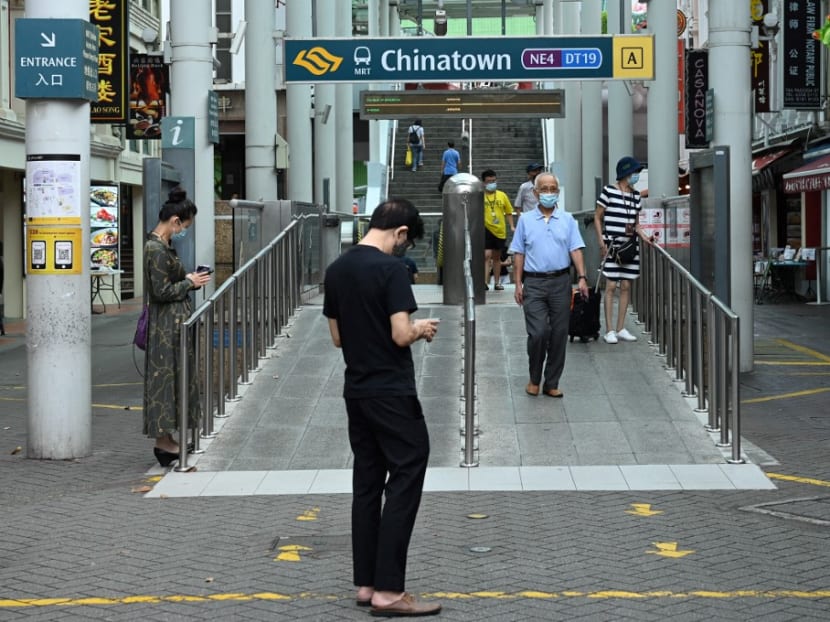Current restrictions ‘adequate’; social interactions, transmission risks ‘considerably’ lowered: Covid-19 task force
SINGAPORE — The present round of tighter measures to suppress a surge in Covid-19 cases is “adequate” and has “considerably” lowered interactions and transmission risks, while allowing most work and daily activities to continue.

The government task force said that the significant reduction in daily activities such as movement on public transport has slowed the chains of transmission and reduced the number of cases with unknown links.
- The restrictions in force now are enough and have lowered the risks of Covid-19’s spread, the Government's Covid-19 task force said
- Singapore will likely resume activities gradually after June 13, the task force said
- As of May 30, Singapore has administered more than four million doses of Covid-19 vaccines
SINGAPORE — The present round of tighter measures to suppress a surge in Covid-19 cases is “adequate” and has “considerably” lowered interactions and transmission risks, while allowing most work and daily activities to continue.
This was the assessment of the Government’s Covid-19 task force, which said on Monday (May 31) that it would continue tracking the situation and giving updates on the coronavirus situation and community measures whenever the need arises.
On May 16, Singapore imposed tighter rules to contain a Covid-19 resurgence, banning dining in and limiting gatherings to two persons. The measures are expected to be rolled back after June 13.
Prime Minister Lee Hsien Loong said in a televised speech on Monday that Singapore should be able to relax the restrictions after June 13, if the situation continues to improve and the number of infections in the community falls further.
At a press conference following that, Finance Minister Lawrence Wong, the task force co-chair, said that Singapore was unlikely to return to Phase Three of its reopening immediately, but would resume activities “gradually”.
The task force said that the significant reduction in daily activities such as movement on public transport has slowed the chains of transmission and reduced the number of cases with unknown links.
“This has also facilitated the swift detection, isolation and ringfencing of transmission chains.”
Health Minister Ong Ye Kung, another task force co-chair, said that the number of Covid-19 cases has dropped from 182 within the first seven days of Singapore going on heightened alert to 136 cases in the following seven days.
Still, the infections with unknown origins remain the “most worrying”, as the infected persons could be unknowingly transmitting the coronavirus, he said.
In the last seven days or so, the number of such “unlinked” cases has dropped to 25 from 39 in the seven days before.
“All in all, we are nudging in the right direction,” Mr Ong added.
VACCINATION NUMBERS
As of Sunday, Singapore has administered more than four million doses of the Pfizer-BioNTech and Moderna Covid-19 vaccines, the two approved for use here.
Nearly 2.3 million people have received at least a first dose. Among them, more than 1.7 million have received their second dose and completed the full regimen.
The task force said that vaccine uptake remains encouraging.
So far, 72 per cent of eligible persons aged 45 to 59, and about 60 per cent of those aged 40 to 44, have received their Covid-19 vaccine or booked their appointments for the jabs.
As for seniors aged 60 and older, nearly 73 per cent of those eligible for the shots have also received them or booked their appointments.
“However, we need to continue to encourage more to be vaccinated, especially among this older, vulnerable population,” the task force said.
Mr Ong said that vaccines have reduced the odds of infection and severe illness.
Of all Covid-19 cases reported here since April 11, 8 per cent of unvaccinated individuals developed serious disease that needed supplemental oxygen.
Among those vaccinated, only one out of 93 — or slightly more than 1 per cent — came down with severe illness needing oxygen support.









